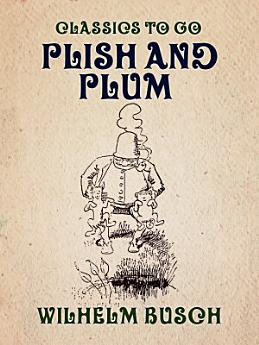Plish and Plum
Hun 2019 · Otbebookpublishing
E-book
17
Mga Page
family_home
Kwalipikado
info
reportHindi na-verify ang mga rating at review Matuto Pa
Tungkol sa ebook na ito
Excerpt: "With a pipe between his lips, Two young dogs upon his hips," Jogs along old Caspar Sly; How that man can smoke—oh my! But although the pipe-bowl glows Red and hot beneath his nose, Yet his heart is icy-cold; How can earth such wretches hold! "Of what earthly use to me Can such brutes," he mutters, "be? Do they earn their vittles? No! 'Tis high time I let 'em go. What you don't want, fling away! Them's my sentiments, I say!"
Tungkol sa may-akda
Wilhelm Busch (1832-1908) was a pioneering German humorist, poet, and painter whose satirical works left an indelible mark on the world of literature and visual arts. Born in Wiedensahl, Germany, Busch initially pursued mechanical engineering before shifting his focus to art and literature, a decision that would shape the landscape of German humor.Busch is best known for his illustrated stories, which combined witty verse with expressive drawings, creating a unique narrative style that prefigured modern comic strips. His most famous creations, "Max and Moritz," are mischievous characters whose antics have delighted and scandalized readers since their debut in 1865. These tales, filled with dark humor and moral lessons, often sparked controversy for their subversive content and critique of bourgeois society.A master of satire, Busch's work often targeted the hypocrisy and pretensions of his time, making him a precursor to later comic artists and satirists. His influence can be seen in the works of contemporary cartoonists and graphic novelists, who owe a debt to his innovative blending of text and image.Despite facing criticism from conservative circles, Busch's legacy endures as a trailblazer in the world of illustrated storytelling. His sharp wit and keen observations continue to resonate, offering modern readers a glimpse into the societal norms and challenges of 19th-century Germany, all while providing timeless commentary on human nature.
I-rate ang e-book na ito
Ipalaam sa amin ang iyong opinyon.
Impormasyon sa pagbabasa
Mga smartphone at tablet
I-install ang Google Play Books app para sa Android at iPad/iPhone. Awtomatiko itong nagsi-sync sa account mo at nagbibigay-daan sa iyong magbasa online o offline nasaan ka man.
Mga laptop at computer
Maaari kang makinig sa mga audiobook na binili sa Google Play gamit ang web browser ng iyong computer.
Mga eReader at iba pang mga device
Para magbasa tungkol sa mga e-ink device gaya ng mga Kobo eReader, kakailanganin mong mag-download ng file at ilipat ito sa iyong device. Sundin ang mga detalyadong tagubilin sa Help Center para mailipat ang mga file sa mga sinusuportahang eReader.







